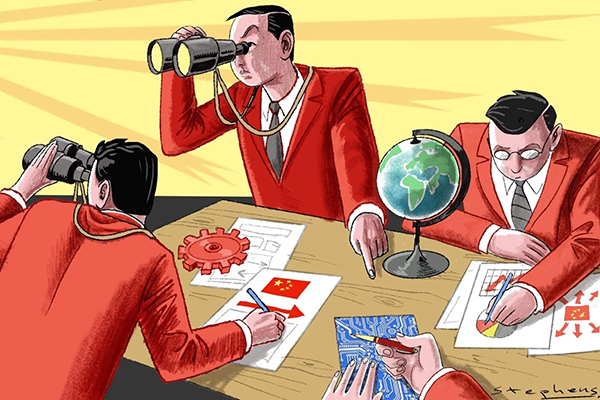Jorge Heine: Free Trade Agreements, China and the Art of Small State Diplomacy
September 27 , 2022By Jorge Heine, a non-resident senior research fellow at the Center for China and Globalization (CCG).
The story goes that during the negotiation of the China-Chile free trade agreement (FTA) in 2005, Chile was keen to include wine, one of its leading export products, in the list of duty-free items, but China was reluctant to do so. The Chilean negotiator kept insisting, yet, his Chinese counterpart demurred with various unconvincing reasons for not doing so. Finally, in exasperation, the Chinese high official said: “Look, don’t insist. We Chinese are so many, and your wine is so good, that if it is included in the FTA, we would drink it all up and leave you Chileans without any for yourselves”. The deadpan answer of the Chilean official was: “Do not worry. If that were to be the case, we would be ready to make the ultimate sacrifice”. And what would that be? asked the Chinese negotiator, “We would drink Argentine wine…” responded the Chilean side.
To make a long story short, wine was included in the list of duty-free items in the FTA, and by 2016, China had become the number one market for Chilean wine, displacing the US and the UK, which had traditionally alternated on that spot. And overall bilateral trade between the two countries increased from $8 billion in 2005 to $55 billion in 2021, a seven-fold increase in the span of 16 years. Chile also runs a healthy surplus in its balance of trade with China, disproving those who warned that signing a trade agreement with China would spell gloom and doom for Chile’s foreign trade balance.
At a time when China is negotiating an FTA with Ecuador, another with Nicaragua, is considering one with Uruguay, and Panama is announcing the restart of its own FTA talks with China, many are asking, “What’s up with China’s trade deals in Latin America? Is no country too small to escape Beijing’s attention?”
As I point out in my new book Xi-na in the Century of the Dragon: What Everyone Needs to Know About China (published in Spanish by LOM), this question is slightly miscast. It assumes that all initiatives in China-Latin American relations are hatched in Beijing. The truth of the matter is that many of them are in fact started in the region. And it is by no means a coincidence that so many Latin American governments are keen to increase their trade with China now, as the region struggles to come out of what the United Nations Commission for Latin America and the Caribbean (ECLAC) has called “the worst crisis in 120 years”. The fact that Chile, the region’s most developed country and for long its fastest-growing (earning the nickname “the jaguar of South America”), is projected not to grow at all in 2023 says it all.
In this context, the cases of Ecuador and Uruguay are telling. Though Chile, Peru, and Colombia do have FTAs with the United States, Ecuador and Uruguay do not. Both have approached Washington about the possibility, but have been rebuffed in no uncertain terms. The US is not signing trade deals these days. Is it surprising that they turn to Beijing? What makes it particularly noteworthy is that both countries are led by right-wing governments, thus disproving the notion that closer links with Beijing are ideologically driven. President Guillermo Lasso of Ecuador, a wealthy businessman himself, made a state visit to China that coincided with the 2022 Olympic Games and attended the opening ceremony of the Winter Games in Beijing, in overt defiance of a Western diplomatic boycott, to kickstart FTA negotiations with China.
The case of Panama also illustrates this new dynamic. Although the previous government, led by President Juan Carlos Varela (2015-2019), opened diplomatic relations with the PRC, and did much to further ties with China, including signing many cooperation agreements as well as inviting Chinese participation in a number of large infrastructure projects, this came to an abrupt end when Varela left the presidency. The government that succeeded him proved to be much more vulnerable to external pressures and froze all China-related projects, including FTA negotiations that were at an advanced stage. Yet, last May, President Laurentino Cortizo announced that those negotiations would be resumed.
Nature abhors a vacuum. Latin American countries — and the smaller ones more than the larger ones — depend heavily on international markets. They are keen to access them. As it happens, at a time when the United States and (somewhat less so) the EU circle the wagons and embrace a protectionist credo, China is ready to do business. Can you really blame the Ecuadors and Uruguays of this world for knocking on Beijing’s door?
From The China Global South Project, 2022-9-27
Topical News See more






